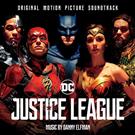|
|
||||
|
by Richard Jack Smith  Below are more soundtrack reviews and poems. 1001 Arabian Nights (George Duning, 1959) **** Film music with great love themes and songs can melt your heart. That’s the case when hearing George Duning’s exceptional 1001 Arabian Nights. The enchantment to be taken away from this experience remains unmissable. However, I refrain from giving this score my highest rating only because the love theme carries strains of “I Saw Mommy Kissing Santa Claus.” The latter was recorded in 1952, and the similarities are too close to be ignored. Nevertheless, a poem: I like 1001 Arabian Nights Such merriment and candle lights. It set my heart aglow As the earth embraces snow. Bell Book and Candle (George Duning, 1958) *** Up for a little light listening? Then treat yourself to Bell Book and Candle. This sophisticated distraction from composer George Duning relaxes the heart and eases the mind. Sounds like a solid recommendation after a hard day’s work if you ask me. Black Rain (Hans Zimmer, 1989) **** Hans Zimmer, why don’t you write music like Black Rain anymore? Such evocative themes, characterisation by counterpoint and emphasis on rhythm could be standard procedure. Verily, director Ridley Scott’s rationale on movie music has been thoroughly deconstructed. The lines are clear, allegiances formed, enemies cast in stone. Yet La La Land Records present Black Rain in a fashion not even the film could honour. I say it’s one of Zimmer’s finest, possibly his greatest score from the 1980s. Let the debate unfold. Justice League (Danny Elfman, 2017) A review of Justice League cannot be made without inherent bias. My adoration for the animated series and its soundtrack might colour how I interpret Danny Elfman’s take. Here’s the answer in rhyme: Why the strange poise? Justice League all about noise. Left in the wind Please forgive how they sinned.
Without a clear theme They might as well scream. “Then There Were Three” got the Batman plug If you ask me it’s a bug. La Dolce Vita (Nino Rota, 1960) **** Like a three piece suit, La Dolce Vita brings elegance to the party. Not simply for jazz lovers, Nino Rota wraps a warm blanket around the disinterested. Infectious melodies, a simple hook and toe-tapping grace are some of the highlights. You’ll never want for giddiness again. Rapa Nui (Stewart Copeland, 1994) **** Few more than I would love to see soundtrack releases for Highlander II: The Quickening and Surviving the Game. Both were created by Stewart Copeland. In the meantime, we have Rapa Nui to consider. This largely forgotten production only made dismal returns on a $20 million budget. At ground level, the novelties of percussion and atmosphere form the brain trust here. This was a hypnotic and enticing experience. It’s worth comparing to a new culture; once found, you want to learn more and hear the native tongue. Thus, Rapa Nui carries the rare quality of altering one’s perception through soulful arrangements. While some might argue that these elements grate, embracing such foreign timbres proves worthwhile. A poem to mark the occasion: Look beyond the safe For there lies confident wraith. Music to hold and inspire As fans, we conspire.
Little need for rhetoric Such oddities promote the aleatoric. Belonging with the greatest deed Originality nurtured from seed. The River Wild (Maurice Jarre, 1994) ** Only a poem this time: Hoping for something mild? Check out The River Wild. Jerry Goldsmith earned the final count Yet Maurice Jarre can mount.
It helps setting a fine pace While creating a new face. “The Cliff” should enthral Yet it tends to stall.
Unwinding and losing focus Less adventurous than a locust. Standard suspense stuff Comes across as rough.
Such an overwrought climax In dire need of Timex. The Tailor of Panama (Shaun Davey, 2001) *** About the only John Le Carré novel I have enjoyed to date would be The Tailor of Panama. The soundtrack situation follows a similar course. A poem to explain: The Tailor of Panama stirs No matter what occurs. Worth your hard earned dough? Enough good tracks in a row.
A tricky minefield spies approach The bond between student and coach. Shades which define loser or winner Here everyone’s a sinner
That’s what Shaun Davey tracks His score rarely lacks. Quite impressive as a whole Style as the curious mole.
Once or twice I felt like a dance With sumptuous music to enhance. The Witches Mountain (Fernando Garcia Morcillo, 1975) Lamentable in the extreme, I question Fernando Garcia Morcillo’s abilities. Grouped alongside the equally dismal The Night of the Sorcerers, The Witches Mountain ended up being a pain in the neck. It would seem that Morcillo creates his music without consideration for pace or emotion. Therefore, it fails to earn a single star. SCORE OF THE MOMENT The List of Adrian Messenger (Jerry Goldsmith, 1963) ***** A case of subtle seduction that keeps the sunshine in your smile. With The List of Adrian Messenger, composer Jerry Goldsmith gave us a truly wonderful theme. Actually, my father and I are always humming it. Featured prominently via various orchestral groups, the chords grow in the memory while promising rewards upon return. A poem to close: So what’s the deal With that Bernard Herrmann steal? Jerry Goldsmith makes plans While others boast idle hands.
Homage means only the first shoot Can come from the root. Then it becomes a manner Of retooling the spanner.
The List of Adrian Messenger cooks Not only about murder and spooks. Mischief romancing the bold. Overall, I am sold. *** |
||
|
© 2026 - ReelTalk Movie Reviews Website designed by Dot Pitch Studios, LLC |



